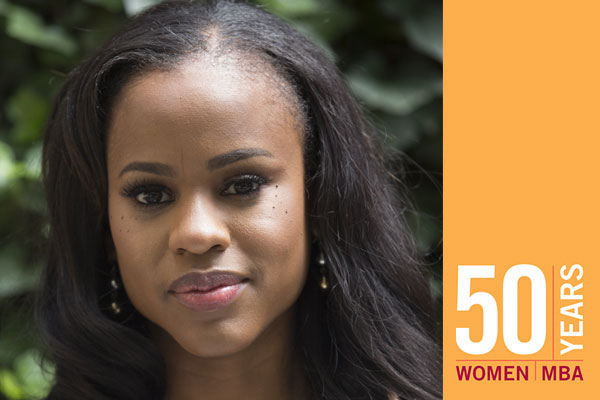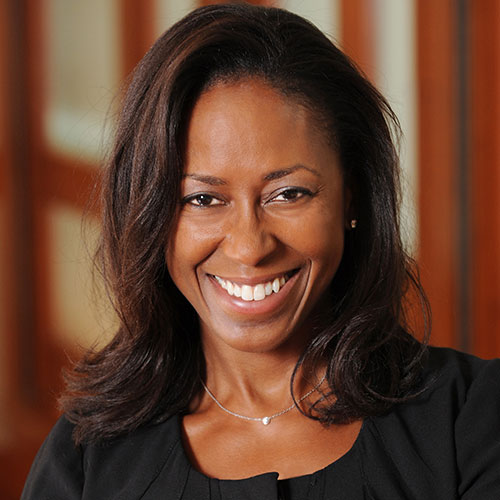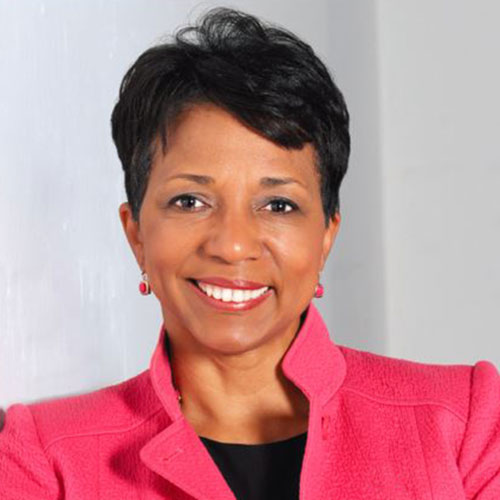
Zuhairah Washington
Biography
An entrepreneur and seasoned business professional with over 15 years of operations, technology, and leadership experience, Zuhairah Washington is passionate about building innovative and profitable businesses with teams that democratize access to vital customer needs.
Working with global Fortune 500 companies, VC-backed startups, and government and nonprofit organizations, Zuhairah has built innovative businesses and led strategic initiatives to drive unprecedented growth. As an early executive at Uber, she grew businesses from startup to scale and ran one of the top five US markets. In this capacity, she had full people management and P&L responsibility, led the successful launches of uberPOOL and uberEATS, and grew the core business to a $1 billion run rate. Prior to Uber, she was founder & CEO of an innovative, VC-backed relationship startup.
What impact did HBS have on your life and the life of others?
Black women in America have consistently demonstrated that they are the moral compass of our nation; as a “double minority” we are keenly aware of the oppression of others. HBS graduates, in my experience, are no exception. In fact, they are the consummate example of this rule. While I was still defining my voice and my beliefs when I entered HBS, I believe the political and economic climate we live in today will result in black women arriving with a clearer sense of what they stand for, what they value, and how they want to impact the world.
HBS fundamentally changed every aspect of my life, giving me the freedom to pursue my dreams without fear. The path I’ve followed has been notably different from a typical JD/MBA. Upon graduation, I had no less than five offers from top banks, consulting firms, and real estate companies, yet I decided to go with a lesser-known firm because of its mission and founder. At the time, MacFarlane Partners had yet to reach its peak of $20 billion in assets under management. Victor MacFarlane, however, was driven by more than profit. He wanted to have a positive impact on the communities he invested in, but also make a return for his pension fund investors. How he went about his business mattered to me; that, along with the example he set as an African American building a multibillion dollar portfolio in the world of real estate is what attracted me to the firm. It was an environment where I could establish initiatives such as our “Emerging Manager Program,” which invested in early-stage investors and developers (mostly people of color) in real estate.
Over time, I saw the capacity for technology to change the world, and I wanted to be part of it. After leaving MacFarlane, I moved to London and knocked on doors for six months, looking for opportunities and living off my savings. In the UK they didn't care about my Harvard degree. Instead, I had to be creative to find a role in the sector and the function that I desired. On a jobs board, I saw an internship for a business development role at a startup, applied, and was lucky enough to get an interview. I managed to impress the general manager, who in turn convinced the CEO that they should hire me as a full-time director running partnerships throughout Europe.
After about a year in that role, I decided it was time to start my own tech company in the relationship space; without the credibility that HBS provided, I’m not sure I would have had the confidence to quit my job and take the plunge. Kahnoodle was built on a deep and genuine desire to see couples thrive. My parents were never married, so I personally wanted to find a way to help relationships stand the test of time. I also understood the tremendous impact a solid partner and home life could have on all the other social issues we see in urban communities. I ran my company while also giving birth to my first child. At the time I was commuting between Dubai (where my husband worked) and New York (where my team was based). I grew Kahnoodle for two years, raising multiple rounds of financing until it became clear that it was going to take much more traction to get to the size and scale desired.
After some reflection, I started to look for my next opportunity; that’s when I stumbled upon Uber, which in 2013 was not a household name. I was attracted to the opportunity to be a general manager because it gave me the privilege of being a CEO without all of the financial and emotional risk. I am proud to say I led the team responsible for growing and scaling Uber in the Mid-Atlantic region. I was the company’s only African American female general manager, and often leaned on my HBS network and case study learnings to navigate critical business decisions. Under my leadership, the business grew to a $1 billion run rate and trips in underserved, predominately minority communities in Washington, DC, increased sevenfold. This was important to me, both because African American men have traditionally been discriminated against by taxi drivers and because adequate, affordable transportation options are often lacking in urban cores, preventing families from accessing better educational and employment opportunities.
I was one of the first voices to speak out at Uber about the need to develop a more inclusive and diverse culture at the company. I cofounded the company’s largest employee resource group, the Women of Uber, as a way of creating a safe space to create community, share ideas, and build the inclusive environment that women wanted to see more broadly. I was also one of the first general managers to focus on the driver experience and build the business case for finding more of a balance between the value created by drivers and paid by riders.
Being black and a woman in business is a very unique journey. To this day, having roots in the AASU community has given me a home—a place where I feel accepted, fed, and stretched, all at the same time. Having that sense of “home,” especially when working in industries not used to seeing folks who look like me in leadership positions, is fundamental to my success as a black female tech executive.
I recently attended a talk at Uber where Olympic fencer Ibtihaj Muhammad spoke about the challenges she faced as a black woman in a predominantly white sport. One quote in particular stayed with me: “If people can’t beat you, they will often try to break you.” As a black woman in an industry that continues to struggle with diversity and inclusion, I can identify with the experience she described of being consistently tested and challenged on a day-to-day basis—much more so than my white and male counterparts. It’s something that can break you if you don’t have the right support network—the true, deep friends who allow you to be vulnerable and break down once in a while; who remind you of how, in the context of history, your accomplishments are phenomenal.
One final bit of advice for any young woman starting her career: Honor your calling. Go straight toward the thing that makes your heart race, or the problem that makes your blood boil, and attack it with a vengeance. Don’t waste time living someone else’s dream. We need every single one of your brilliant minds and world-changing ideas to achieve full potential.

